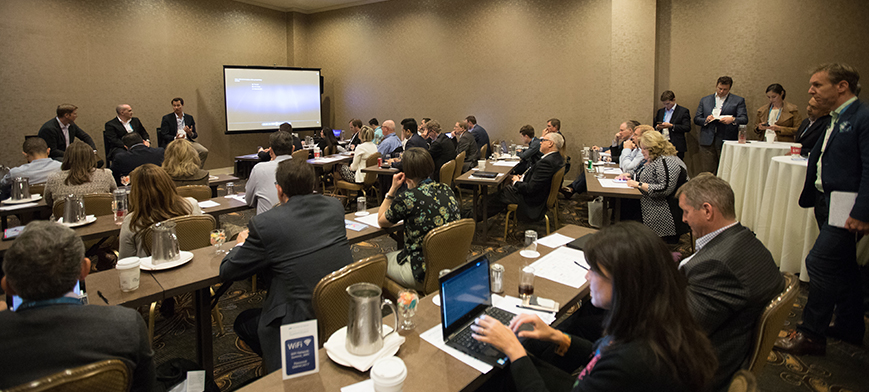Hundreds of senior healthcare executives and leaders came together in Dallas, TX this week for the fifth annual Oliver Wyman Health Innovation Summit. The theme of this year’s event was “Industry Interrupted: Delivering on the Promise of Change.” Here is a summary of Tuesday’s key quotes from a series of eight Executive Sessions where speakers dove deep into topics like consumerism, pharma, the future of trading flow, and artificial intelligence. (The next Oliver Wyman Health Innovation Summit will be November 5-7, 2018 in Dallas, Texas.)
In the first of eight sessions – Looking Beyond the Persona: Knowing What Consumers Really Want – Bob Moesta, President of The Re-Wired Group, and Jay Gerhart, Vice President of Consumer Strategy at Carolinas HealthCare System, discussed the intricate art of establishing a consumerism-based partnership by better understanding what drives consumer behavior. Here are a few highlights from this session:
- Don’t waste time solving a problem that doesn’t exist. “Solve real problems and create real problems for people to get traction. Putting a Band-Aid on something just doesn’t work,” stated Bob.
- Focus on the emotional component of artificial intelligence. “Someday I just want to be able to say, ‘Alexa, I have a sinus infection. What doctor should I go to?’” asked Jay. “But you also have to consider the best emotional choice for people,” he advised.
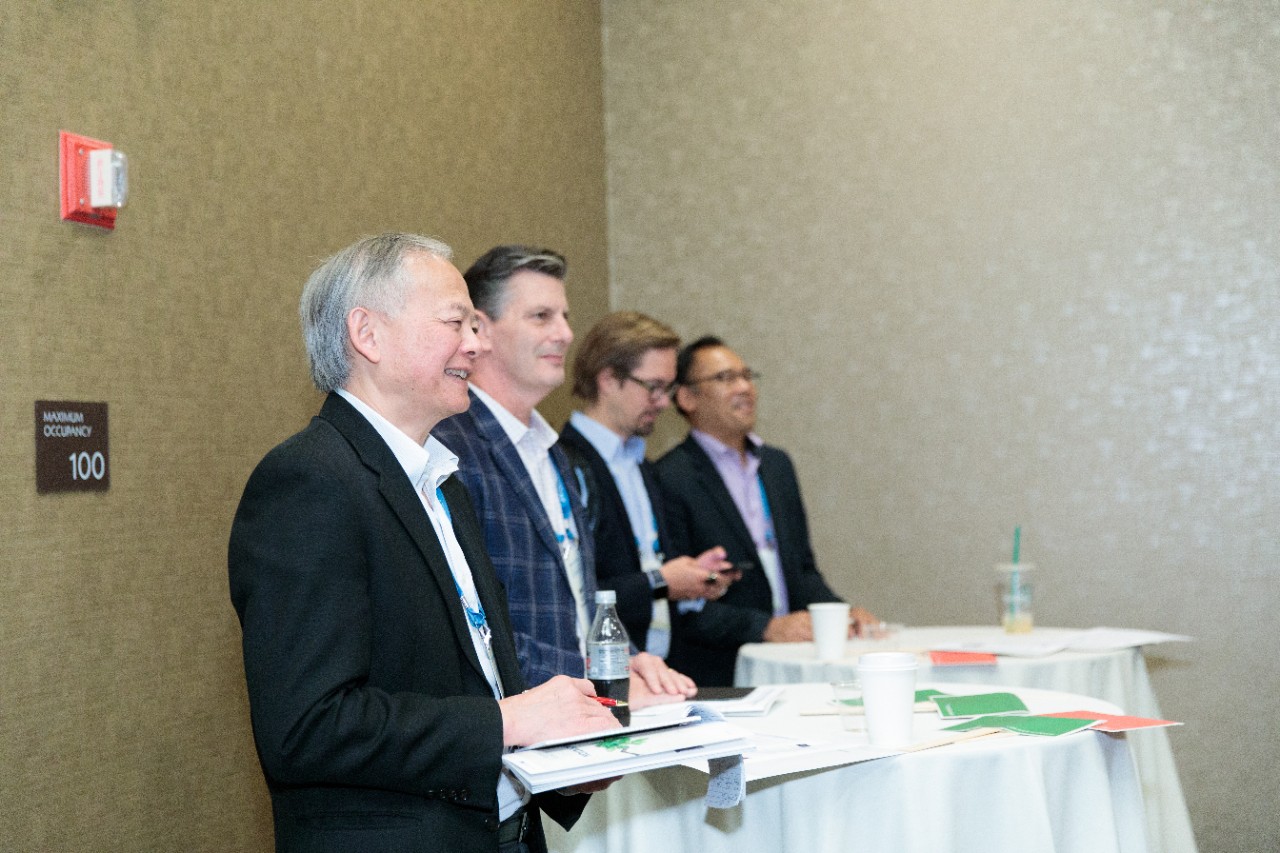
Veer Gidwaney, CEO and Co-Founder of Maxwell Health, Jason Hover, Vice President of Private Exchange Business, BCBS Michigan, and Steven Wilkinson, Senior Director of Total Rewards at Serta Simmons Bedding, addressed audience questions in a session called Distribution Disruption: Who Will Control the Future Trading Flow on the diminished barriers between distribution and content development. Key points included the following:
- The status quo in distribution is not sustainable. Brokers are consolidating, and consumers burdened with cost demand greater choice. Noted Veer, “The tipping point is already happening. You’re either on offense or defense.”
- Health and financial security are the true desired outcomes. It is pretty much impossible to provide real advice on health benefits spending and choice without first understanding the bigger picture regarding where money is being spent in the first place, said panelists. Explained Steven, “With high deductible plans, we ask our employees to take on a lot of risk. Our employees then look to us to help them navigate their healthcare.”
Gaurov Dayal, EVP and Chief of Strategy and Growth at ChenMed, John Kao, President and CEO of Alignment Healthcare, and Jeff Margolis, Chairman and CEO at Welltok, made some intriguing points during their talk, titled Finding Harmony: The Challenge of Marrying High Touch and High Reach. Here are a few of their most thought-provoking quotes:
- Said John, “We believe that the high-touch delivery is fundamentally what’s going to change healthcare – but we need to use technology to help us scale.”
- Advised Jeff, “Be careful about measuring NPS on yesterday’s model.”
- “What do our members want? They want to be at home,” Gaurov concluded.
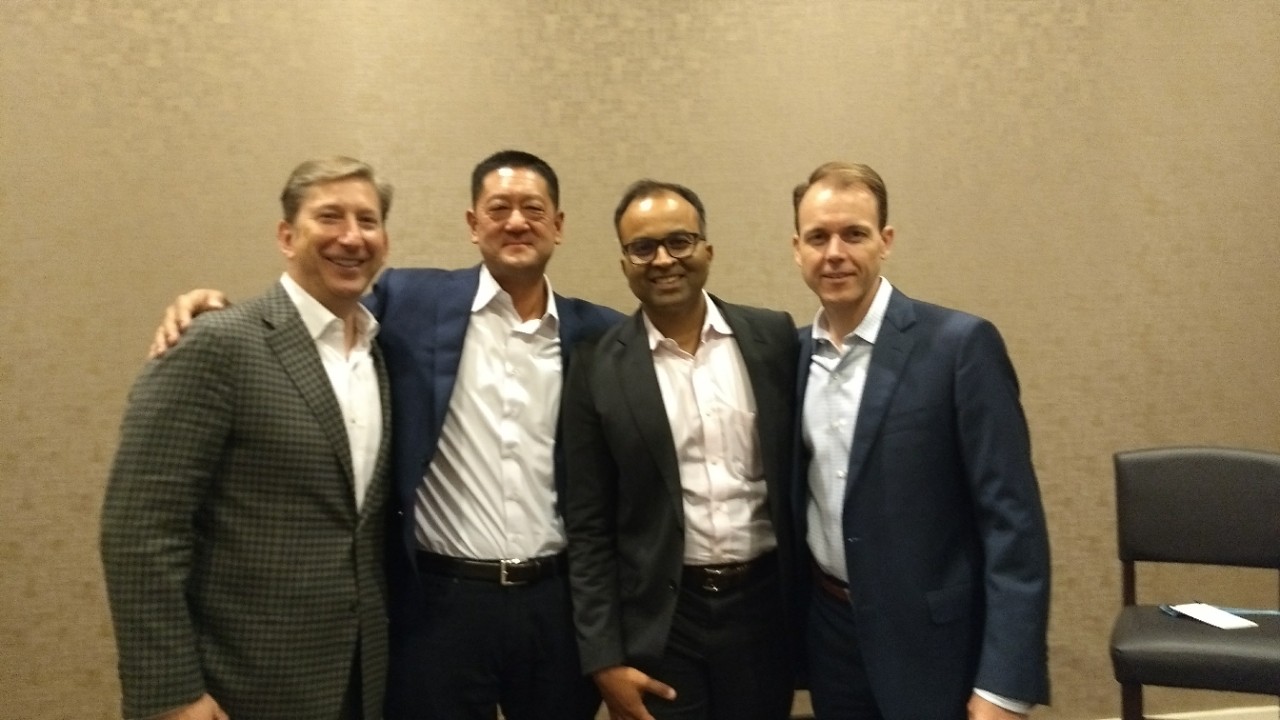
In yet another session of the day, Brandon Ballinger, Co-Founder at Cardiogram, Tony Wang, Chief Operating Officer, at Color Genomics, and Charles Boorady, Founding Managing Director at Health Catalyst Capital Management LLC, discussed how to ignite a healthcare revolution in a session called, Breakthrough Affordability: The Potential Avenues to Radical Change. Key points from the talk include:
- Not everyone needs preventative care. Genomics may be a better solution compared to patient history. Explained Tony, “You don’t want to give prevention to everyone. Need is not evenly distributed across the population.”
- New reimbursement models are needed to improve affordability. “Many of you said your businesses are doing better – you’re benefiting from the rise of healthcare costs,” Charlie explained.
- We must re-evaluate where we invest in infrastructure (and reassess where the rubber meets the road). Added Charles, “We’re in a world today where Google has a lot more relevant medical info about us than our primary care provider.”
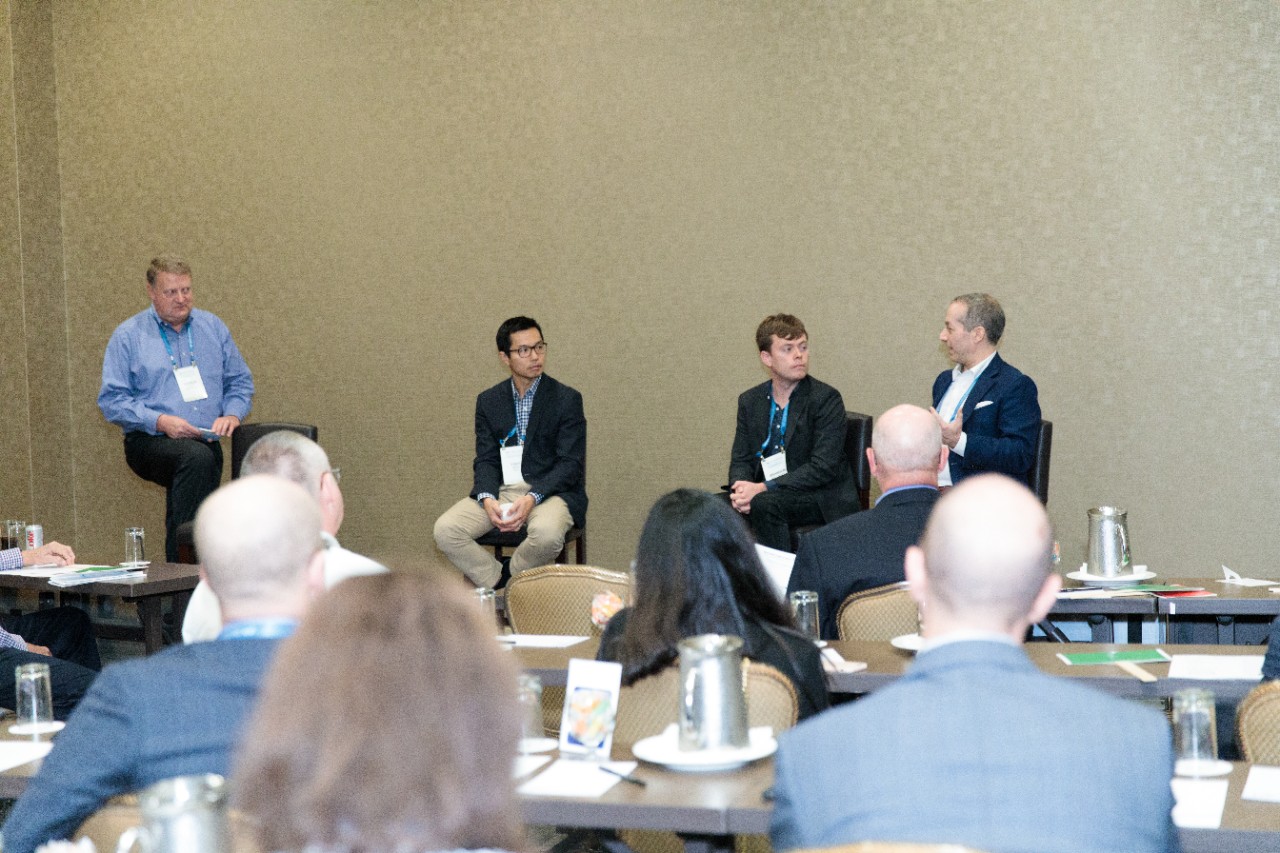
Marco Annunziata, Chief Economist and Executive Director at Global Market Insights at GE and Rich Roth, Chief Strategic Innovation Officer at Dignity Health, led yet another discussion, titled – Driving Success: Building a Disruption-Ready Org. Here are some of their key takeaways:
- You don’t have to do it alone. Find partners, panelists advised. You don’t necessarily have the capacity to do everything alone, so therefore consider your greater role within the larger ecosystem. “Are we really going to build our own things [by ourselves]? Rich asked. “Unless we partner, we will not survive,” he stressed.
- Foster an environment that encourages rewards and change. People with new ideas need to be directly rewarded and recognized for their contributions. Leaders within your organization need to live and breathe the approach and culture you want your organization to adopt. Said Marco, “You need to become more tolerant of experiments that fail.”
- Your talent pool will evolve over time. You may not always have all the talent you need in-house. Consider looking outside your four organizational walls to augment or supplement your team. Stated Simon, “We employ human beings. Human beings think, feel, and act based on emotions, which are critical to address and drive cultural change.”
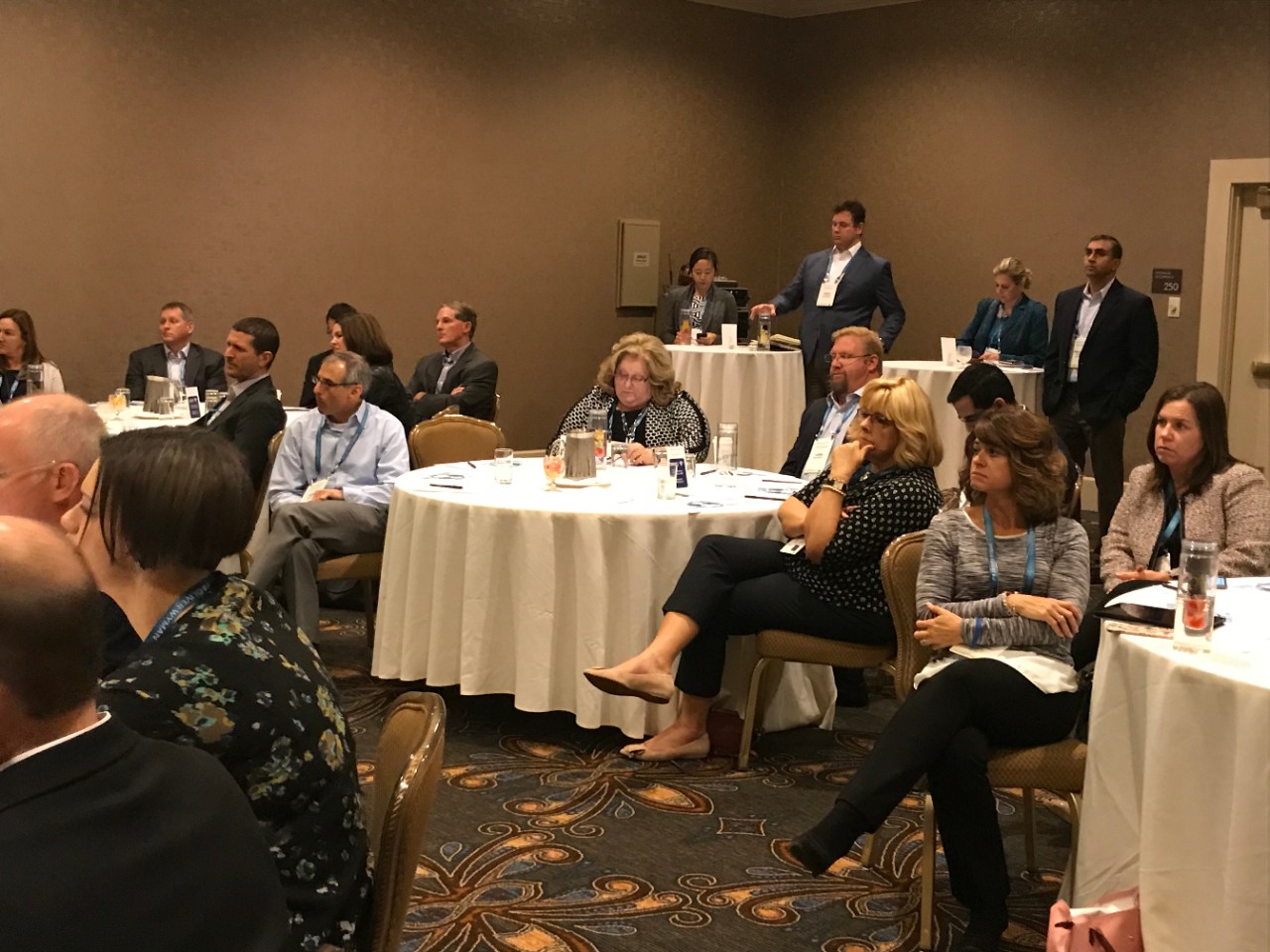
Busy Burr, Vice President and Head of Healthcare Trend and Innovation at Humana, and Nick Reddy, Chief Digital Officer and Senior Vice President of Information Services at Baylor Scott & White Health, discussed some of their best tips and tricks for tackling a few of the healthcare industry’s greatest challenges in a session titled, Inside Out Innovation: Incumbents Taking Charge. Here are a few key quotes to ponder from their session:
- “I’m a corporate innovator, which for many people sounds like an oxymoron,” said Busy. “Ideas are cheap,” she noted. “But the minute you have to apply them, it’s a whole different story.”
- “If you really ask people what they’re trying to get out of analytics, people don’t know,” stated Nick. “People are feeding the beast. But are you feeding the beast too much?” he asked the audience.
- “Healthcare today is a clinical science supported by data,” claimed Nick. “If we don’t do it, someone else will teach us how to do it.”
- “We talk about how mission and aspiration are separate and distinct for our financial goals, but if we don’t see them as intertwined, we will not be successful,” advised Busy.
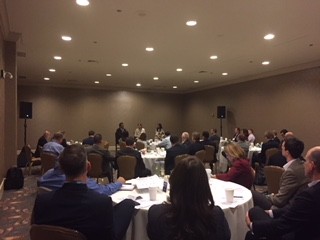
Next up, in a session titled Artificial Intelligence Meets Healthcare: Inside the AI Revolution, Jared Josleyn, Head of Business Development and Partnerships at Verily Life Sciences, and Daniel Nathrath, Ada Health’s CEO & Co-Founder, dissected artificial intelligence’s greater role in the healthcare industry. Key quotes from their discussion are as follows:
- “There is a completely human element to healthcare,” said Jared. “Healthcare is a behavior business – we want healthcare to be about prevention, not disease.”
- “People’s journeys have already changed over the past twenty years,” Daniel stated. “Personal trust with doctors is important, but the journey has already started.”
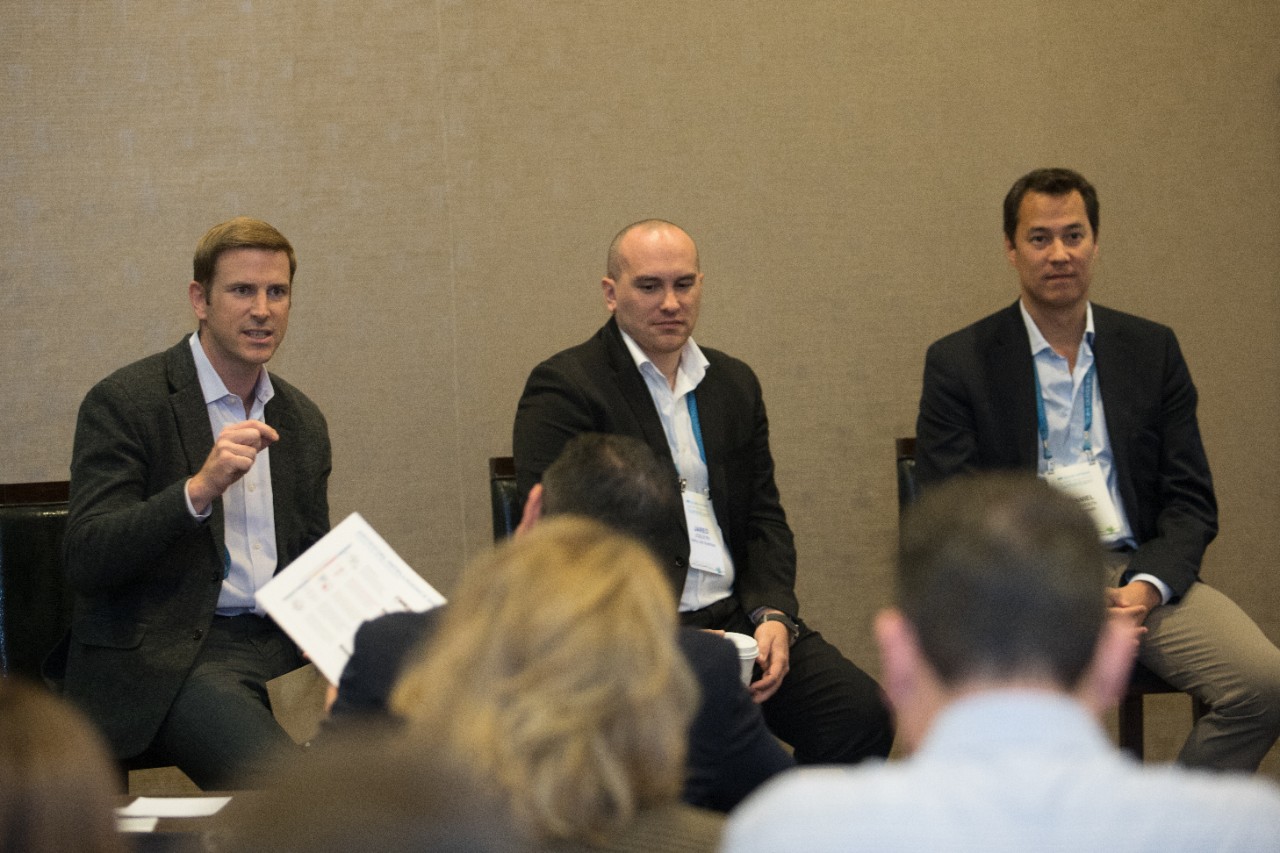
In the day’s final executive session, The Cost of the Cure: Defining 'Value' in Pharma, Alex Turkeltaub, CEO & Co-Founder of Roam Analytics, Lee Newcomber, Senior Vice President of Oncology at UnitedHealthcare, and Young Fried, Vice President of Pharmacy at HealthPartners, explored the rationale behind multiple stakeholders’ approaches to value. Here are a few highlights from their session:
- Lee: “I’m not against pharma making $1 billion for a blockbuster – as long as there’s a proper market.”
- Alex: “As you move to value, the fundamental thesis of our business is the integration of artificial intelligence and advanced analytics.”


